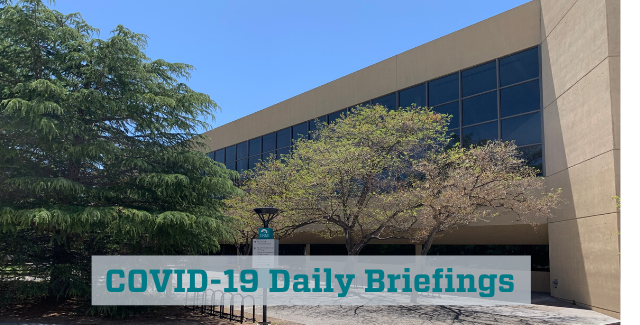Document Type
Brief
Publication Date
4-20-2020
Abstract
Executive Summary:
NM highlights. Immigration detention centers. US outbreak perceptions. States lockdown protests. Drones sample transport. Black market antivirals. NZ eases lockdown. Germany partial reopening. Low temperature/humidity favors transmission. Wastewater epidemiology. Contact tracing privacy. D-dimer severity prediction. China fatality factors. Group testing. High throughput testing. Pet testing. WHO misinformation countermeasure. WHO produce washing. Public health strategies. Fellows education adaptations. Mental health priorities. Practice guidelines: immunocompromised cancer patients, IBD, tracheostomy, trauma surgery, neurovascular management, head & neck cancer surgery, long-term care, and respiratory home care. Remdesivir macaque clinical benefit. Hydroxychloroquine meta-analysis. Heparin anticoagulant therapy. Hypothiocyanite hypothesis. 36 new clinical trials. Neutrophil lymphocyte ratio. Blood coagulation. Viral organ system reach. Optimal antiviral dosing.
Recommended Citation
Lambert, Christophe G.; Shawn Stoicu; Ingrid Hendrix; Lori D. Sloane; Anastasiya Nestsiarovich; Praveen Kumar; Nicolas Lauve; Hannah Groves; Rachel D. King; Estefania Montanez; Malik Alqawasmi; Samuel Anyona; Evans Raballah; Elly Munde; Cristian Bologa; Alexandra Yinglng; Gregory Mertz; Kristine Tollestrup; Orrin Myers; and Douglas J. Perkins. "2020-04-20 DAILY UNM GLOBAL HEALTH COVID-19 BRIEFING." (2020). https://digitalrepository.unm.edu/hsc_covid19_briefings/17


Comments
Disclaimer: The UNM Global Health COVID-19 Briefing is provided as a public service. Sources include not only peer-reviewed literature, but also preliminary research manuscripts that have not been peer reviewed along with lay news media reports. The peer-review process often results in manuscript improvement, with corrections made for errors and unsubstantiated conclusions being corrected. Furthermore, many headlines and summaries in the briefing are written by student volunteers and others who may lack subject matter expertise in this rapidly evolving field. As such, the headlines and summaries should not be regarded as conclusive. Instead, readers are encouraged to use the briefing to identify areas of interest and then use the embedded links to read and critically evaluate the primary sources.